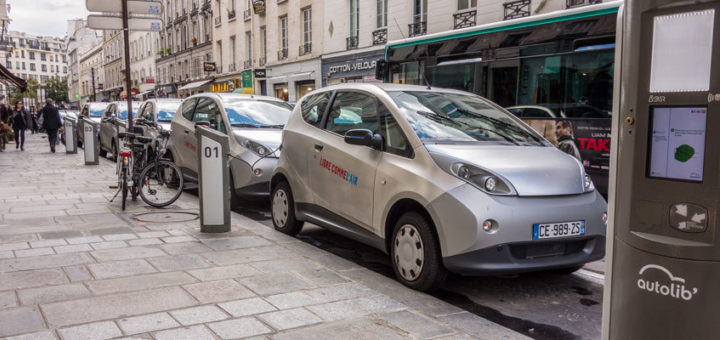UK: 'The Home of Electric Vehicles'?
Boris Johnson wants the UK to be centre of the EV world... so, how close is it now?
By Richard Black
Share
Last updated:
In his first speech to parliament as Prime Minister, Boris Johnson declared that the UK will be “the home of electric vehicles”.
This is great, as, however you look at it, the UK is currently NOT the home of electric vehicles (nor has the most ambitious policies, as I have discussed previously in this blog here).
So just how much work needs to be done to change that?

How would you define “the home” anyway? Is the home of football Wembley, or Brazil? Is Whisk(e)y Scottish, or Irish?
The concept of home can be nebulous, but clearly when it comes to EVs it implies some high level of use and manufacture, along with some other links like affection, or research and development, or history.
Regardless, if Mr. Johnson wants the UK to become EVs ‘spiritual’ home he (or rather his new transport secretary, Grant Shapps) has some work to do.
Uptake
So then, where is home?
Two countries jump out.
On a percentage-of-total-sales measure Norway is the out-and-out leader. Last month (July 2019) pure EVs (BEVs) accounted for 38% of total sales there, with PHEVs accounting for a further 10% of sales. The best selling car in Norway this year is the Tesla Model 3 (in the UK it’s the Ford Fiesta).
July was not a blip either. BEVs made up 58.4% of new sales in March of this year. In fact, sales of electrified cars have been around or above 40% of the market since the beginning of 2018.
Clearly, Norwegian uptake policies (of which there are many) are working, and the UK (and, in fact, almost every other country in the world) could learn a lot from Norway.
But Norway does not manufacture a single electric vehicle – they are all imported. So clearly it cannot claim the title of spiritual home. For that, we need to look east.
Production
China’s stats are impressive. But China is big – nearly one fifth of the world’s population is Chinese, so it ‘should’ have 20% of everything.

Way above this figure though is the fact that 60% of all EVs sold worldwide in Q4 2018 were bought in China (this equated to 7% of the total car sales there). It has over 50% of all the public chargepoints installed in the world.
China’s local (city) level policies are also impressive. More EVs were sold in Shenzhen than in any European country Shenzen is also home to the world’s largest bus fleet, and that fleet is already 100% electric. All 16,000 of them. For context, London has just over 9000 buses, and only 155 of them are fully electric.
And incidentally, 100% of the charging facilities in place for Schenzhen’s buses are also available for private cars to use when not being used by the buses. (Are you paying attention, TfL?).
Perhaps more ominously for those of a competitive streak, China has more than 60% of the world’s lithium-ion battery production. It also has a lot of EV manufacturers, some of which are a) large entities in their own right, and b) becoming (or purchasing) household names in Europe.
For instance, Geely already owns the London Electric Vehicle Company (maker of black cabs) and Volvo, and has a majority stake in Lotus. According to Forbes, it is the 647th largest public company by value in the world, which sounds impressive, until you realise that it is dwarfed by its neighbour, SAIC (the Shanghai Automotive Industry Corporation), the 100th largest global company-by-value. SAIC is larger than, amongst others, Ford, Nissan, Renault and Peugeot.
It comes from a combustive background though, whereas the third Chinese company usually mooted when discussing EVs is an electric pioneer through-and-through.
Shenzhen-based BYD (“Build Your Dreams”) started life in 1995 as a rechargeable battery manufacturer, and its first market was mobile phones. It moved into vehicles soon after, and now produces both cars and buses. In partnership with Alexander Dennis, it has made the majority of the UKs electric buses.
What’s most impressive is that these Chinese companies were relatively unheard of 20 years ago. Indeed, Geely only made its first car in 1997. A Reuters analysis of EV investment found that fully 45% of the $300 billion it identified was flowing to China.
It’s fair to say that – when it comes to global EV manufacturing – the Chinese are coming.
R&D
So far, so glum for the new Prime Minister. Turns out he has work to do to fulfill his pledge. But there are bright spots.
The UK is already the spiritual home to Formula 1; six out of the ten teams have their headquarters here (including some distinctly unBritish teams such as ‘German’ Mercedes).
The UK is also the global base for Formula E (electric). (Genuine question: will Formula 1 absorb Formula E, or will Formula E overtake Formula 1?). This is important, as technical developments in F1 tend to trickle down into everyday vehicles. For instance, flywheels that were developed in F1 to capture energy from braking are now used in London’s 155 electric buses.
The Government has already invested in automotive R&D through the Advanced Propulsion Centre. Indeed, it’s made £1.2 billion available via it. But the big question is, is this enough?
(Incidentally, the lithium ion battery was invented at the University of Oxford by the German-born American John Goodenough. So there is a UK claim to already owning the “history” part of any spiritual home. Sort of.)
The UK could become the spiritual home of electric vehicles. Of course it could. But that applies to every country and region wishing to take the crown, including India, Germany, Japan, California and others.
The automotive sector in the UK is centred around the West Midlands, employs 168,000 people, and accounts for 14% of total exports. There is a long, and proud, automotive history here.
But there is also a long and proud automotive history in, for instance, Detroit, or South Korea.
Regardless, the transition to electric vehicles is, thus far, the most disruptive thing the global automotive industry has ever seen, and it’s only just begun. There will be winners and losers, and it remains to be seen where the UK will end up. So what are the next steps, Boris?
This blog appeared first on Fully Charged https://fullycharged.show/blog...
Share